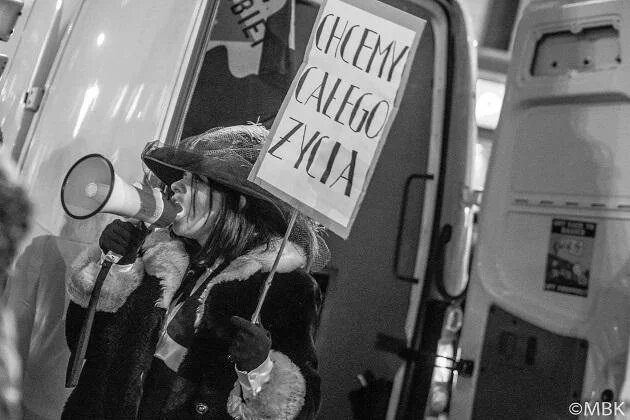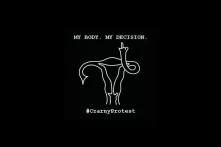This year is exceptional for Poland when it comes to celebrating historical memory. Multiple anniversaries awaiting us in 2018 provide ample opportunity to reflect on the contemporary meanings of all those diverse, laudable and difficult events from the modern history of Poland, that is, the centenary of end of World War I and the regaining of the Polish state’s independence in 1918, the 75th anniversary of the Warsaw Ghetto Uprising and fiftieth anniversary of the communist regime’s antisemitic campaign against the student revolt of 1968.

Historical memory is a conscious and collective choice of what there is to be remembered, cherished and saved from a community’s or region’s history in order to pass it on to contemporary and future generations as models of righteousness and moral excellence. For an organisation as strongly rooted in the culture of feminist and human rights activism as the Heinrich Böll Foundation, adopting a herstory perspective and concentrating, above all, on celebrating the 100th anniversary of Polish women gaining voting rights seems to be an obvious choice.
As far as the political situation in 2018 is concerned, we should not only remember and honour the female heroes of women’s struggle for self-determination, but also acknowledge the current processes crucial for the future shape of Polish democracy, especially in the spheres of its most vital implementation: local governments, which are still –as with national-level structures – strongly dominated by men.
This coincidental, but meaningful analogy of dates clearly shows that herstory is not only about commemorating practices, building monuments and renaming streets. What is much more important is putting concrete postulates into practice, including those that have been around us for the last two centuries (!), such as Zofia Nałkowska’s slogan from the Polish Women’s Rally in Cracow in 1907: “We Want All Of Our Life” (#CHCEMYCAŁEGOŻYCIA).
Along with our long-term partners, the Women’s Congress, we want to promote a more egalitarian take on Polish independence, working within the larger network of women rights initiatives. We are especially excited about the huge input of the Congress’ regional structures, which are gradually expanding the scope of their activities with the support of the Heinrich Böll Foundation. We place great hopes in the potential of this coalition to disprove some of the myths most harmful to Polish democracy – e.g. that feminism in Poland is a Western fad, maladjusted to local traditions, or that voting rights were “granted” to women due to the charitable decision of the authorities at the time, while in fact, it was one of the key achievements of female Polish elites’ ten-year struggle.
The historic context of this “masterpiece of our great-grandmothers”, as Małgorzata Fuszara has accurately put it, will be portrayed in the docudrama “Siłaczki” (an expression from Polish literature describing a group of female activists at the turn of the 20th century) directed by Marta Dzido and Piotr Śliwowski. Portraying the lives of several activists from cities like Poznań, Warsaw, Lublin and Cracow, the documentary shows their efforts, obstinacy and consistency in their struggle for access to education and the work sphere, engagement in the independence movement and dedication to the ideas of freedom and emancipation, which led Józef Piłsudski, the Chief of State, to signing the decree on women’s voting rights on November 28th 1918. The authors emphasise the fact that Poland was one of the first countries in the world to take this step.
The main thread of the movie will concentrate on the personal histories of physician and public activist Justyna Budzińska-Tylicka, as well as: the leader of the commemorable delegation to Piłsudski, Maria Dulębianka; the first female candidate to the Polish Parliament, Kazimiera Bujwidowa, thanks to whom the Jagiellonian University accepted the first female students; Paulina Kuczalska-Reinschmit, also known as the “hetman of feminism”, who was the first to distinguish the suffragette postulates from those of the national independence movement; the Tułodziecki sisters – Aniela, who was imprisoned for organising secret schools for women, and Zofia, the founder of the first female trade union in Poland; Aleksandra Piłsudska, a soldier and supporter of the women’s emancipation movement; Bela Nissenbaum, an activist for Jewish women’s rights; Zofia Moraczewska, a promoter of socio-economic cooperation, who was one of the eight women to enter the Polish Parliament in 1919; and Faustyna Mokrzycka, a member of the Women’s Circle of People’s Education, who in fact served as the prototype of the main character from Stefan Żeromski’s novel “Siłaczka”.
We believe that the current collaboration with Dzido and Śliwkowski will be as successful as the previous one, which was related to the widely acclaimed documentary “Women’s Solidarity”, which resulted in a great opportunity to initiate public debate across political lines. Hopefully, this debate will enable us to better communicate with our European neighbours, such as the Germans, who also 100 years ago achieved equal voting rights for both men and women. This common past should encourage us to talk with each other more respectfully about our common future in Europe, too.
Stay up to date with the Schedule of herstory anniversary events at the website of the Women’s Congress.
The photo gallery from the Women’s Congress press conference on the 100th anniversary of Polish women’s voting rights, January 26th 2018
Learn more about the conference at the website of the Women’s Congress
"Siłaczki". The first film on Polish suffragettes for women’s rights in history is in the making.
